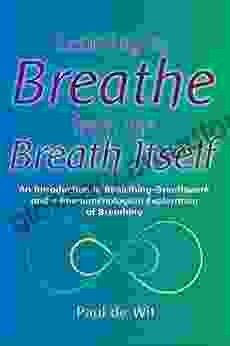Computational Approach To Statistical Arguments In Ecology And Evolution

This book provides a comprehensive overview of the computational approaches to statistical arguments in ecology and evolution. It covers a wide range of topics, including Bayesian statistics, frequentist statistics, maximum likelihood estimation, and Markov chain Monte Carlo methods. The book also includes a number of case studies that illustrate the application of these approaches to real-world problems.
5 out of 5
| Language | : | English |
| File size | : | 3470 KB |
| Text-to-Speech | : | Enabled |
| Screen Reader | : | Supported |
| Enhanced typesetting | : | Enabled |
| Word Wise | : | Enabled |
| Print length | : | 265 pages |
Table of Contents
- Bayesian Statistics
- Frequentist Statistics
- Maximum Likelihood Estimation
- Markov Chain Monte Carlo Methods
- Case Studies
Statistical arguments play a vital role in ecology and evolution. They allow us to make inferences about the natural world based on data. In recent years, there has been a growing interest in using computational approaches to statistical arguments. These approaches offer a number of advantages over traditional methods, including the ability to handle large datasets, the ability to perform complex calculations, and the ability to visualize data in new ways.
Bayesian Statistics
Bayesian statistics is a branch of statistics that uses Bayes' theorem to make inferences about the probability of events. Bayes' theorem is a powerful tool that allows us to update our beliefs about the world as we learn new information. In ecology and evolution, Bayesian statistics has been used to a wide range of problems, including the estimation of population sizes, the analysis of genetic data, and the modeling of ecological systems.
Frequentist Statistics
Frequentist statistics is a branch of statistics that uses the concept of probability to make inferences about the world. Frequentist statistics is based on the idea of sampling distributions. A sampling distribution is a distribution of all possible sample statistics that could be obtained from a given population. In ecology and evolution, frequentist statistics has been used to a wide range of problems, including the testing of hypotheses, the estimation of confidence intervals, and the analysis of variance.
Maximum Likelihood Estimation
Maximum likelihood estimation is a method of estimating the parameters of a statistical model. Maximum likelihood estimation involves finding the values of the parameters that make the observed data most likely. In ecology and evolution, maximum likelihood estimation has been used to a wide range of problems, including the estimation of population sizes, the analysis of genetic data, and the modeling of ecological systems.
Markov Chain Monte Carlo Methods
Markov chain Monte Carlo (MCMC) methods are a class of algorithms that can be used to generate samples from a probability distribution. MCMC methods are often used to sample from distributions that are difficult to sample from directly. In ecology and evolution, MCMC methods have been used to a wide range of problems, including the estimation of population sizes, the analysis of genetic data, and the modeling of ecological systems.
Case Studies
This book includes a number of case studies that illustrate the application of computational approaches to statistical arguments in ecology and evolution. These case studies cover a wide range of topics, including the estimation of population sizes, the analysis of genetic data, and the modeling of ecological systems.
This book provides a comprehensive overview of the computational approaches to statistical arguments in ecology and evolution. It covers a wide range of topics, including Bayesian statistics, frequentist statistics, maximum likelihood estimation, and Markov chain Monte Carlo methods. The book also includes a number of case studies that illustrate the application of these approaches to real-world problems. This book is an essential resource for anyone interested in using computational approaches to statistical arguments in ecology and evolution.
5 out of 5
| Language | : | English |
| File size | : | 3470 KB |
| Text-to-Speech | : | Enabled |
| Screen Reader | : | Supported |
| Enhanced typesetting | : | Enabled |
| Word Wise | : | Enabled |
| Print length | : | 265 pages |
Do you want to contribute by writing guest posts on this blog?
Please contact us and send us a resume of previous articles that you have written.
 Book
Book Novel
Novel Page
Page Chapter
Chapter Text
Text Story
Story Genre
Genre Reader
Reader Library
Library Paperback
Paperback E-book
E-book Magazine
Magazine Newspaper
Newspaper Paragraph
Paragraph Sentence
Sentence Bookmark
Bookmark Shelf
Shelf Glossary
Glossary Bibliography
Bibliography Foreword
Foreword Preface
Preface Synopsis
Synopsis Annotation
Annotation Footnote
Footnote Manuscript
Manuscript Scroll
Scroll Codex
Codex Tome
Tome Bestseller
Bestseller Classics
Classics Library card
Library card Narrative
Narrative Biography
Biography Autobiography
Autobiography Memoir
Memoir Reference
Reference Encyclopedia
Encyclopedia Giacomo Natali
Giacomo Natali Gary Singh
Gary Singh John Lewis
John Lewis Fred Rosen
Fred Rosen Geir Helgesen
Geir Helgesen Otto Fenichel
Otto Fenichel Frank L Cioffi
Frank L Cioffi Gary M Burge
Gary M Burge George Haynes
George Haynes Mark Edmundson
Mark Edmundson Fred B Craddock
Fred B Craddock Frank Viola
Frank Viola Lindsey Schlessinger
Lindsey Schlessinger Mary Pagones
Mary Pagones Gary Rosenzweig
Gary Rosenzweig Sheikh Mohammad Ali
Sheikh Mohammad Ali George A Dunn
George A Dunn George Ellison
George Ellison Gevork Hartoonian
Gevork Hartoonian Giovanni Squillero
Giovanni Squillero
Light bulbAdvertise smarter! Our strategic ad space ensures maximum exposure. Reserve your spot today!

 Ryūnosuke AkutagawaWhat Is An Image In Medieval And Early Modern England Swiss Papers In English
Ryūnosuke AkutagawaWhat Is An Image In Medieval And Early Modern England Swiss Papers In English Eugene ScottFollow ·18.3k
Eugene ScottFollow ·18.3k Jamie BellFollow ·4k
Jamie BellFollow ·4k Hugo CoxFollow ·4.2k
Hugo CoxFollow ·4.2k T.S. EliotFollow ·13k
T.S. EliotFollow ·13k Everett BellFollow ·7.8k
Everett BellFollow ·7.8k Diego BlairFollow ·17.5k
Diego BlairFollow ·17.5k Brian WestFollow ·4.3k
Brian WestFollow ·4.3k Henry GreenFollow ·5.5k
Henry GreenFollow ·5.5k

 Chinua Achebe
Chinua AchebeLetters to My Bipolar Self: A Journey of Hope, Healing,...
Bipolar disFree...

 John Parker
John ParkerLearning to Breathe from the Breath Itself: A...
In the whirlwind of modern life, finding...

 Beau Carter
Beau CarterExperiences In Psychoanalysis: A Journey into the...
Are you fascinated by the...

 George Hayes
George HayesExperiences Of The Neurological Condition Dystonia
Navigating the Labyrinth of a Complex...

 Jerome Powell
Jerome PowellOver 50 Keto Meal Prep Recipes: Your Essential Guide to...
Welcome to the world...
5 out of 5
| Language | : | English |
| File size | : | 3470 KB |
| Text-to-Speech | : | Enabled |
| Screen Reader | : | Supported |
| Enhanced typesetting | : | Enabled |
| Word Wise | : | Enabled |
| Print length | : | 265 pages |












